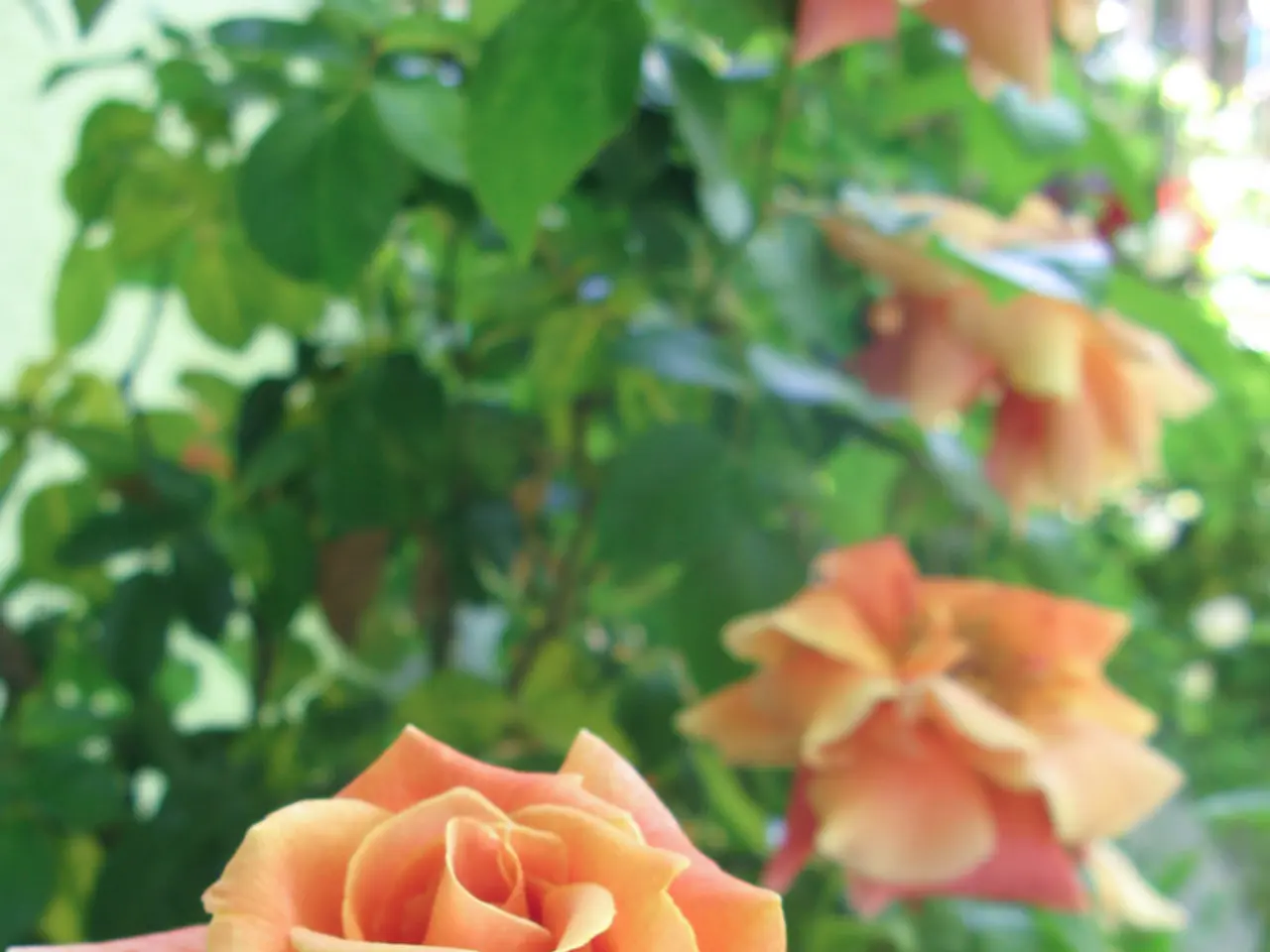Methods for Eradicating Aphids on Roses: Efficient Strategies for a Thriving Flower Bed
In the world of gardening, Larry Meyers stands out as a renowned expert with over a decade of experience. Known for his commitment to sharing knowledge and creating a comprehensive resource for all gardening needs, Meyers' approach to aphid control on roses is a testament to sustainable practices.
Aphids, tiny soft-bodied insects that feed on rose bushes, can cause leaves to curl and appear damaged. To combat these pesky pests, Meyers advocates for a natural defense system in gardens. Encouraging beneficial insects such as ladybugs, lacewings, and parasitic wasps is key to maintaining a balance in the garden. These insects naturally prey on aphids, keeping their populations in check without harming the roses.
Meyers also recommends the use of companion planting with aphid-repellent plants. Marigolds, known for their scent and natural chemicals, can deter aphids from settling on roses. Yarrow, garlic, dill, and cilantro are other plants that attract beneficial insects, further supporting the natural balance in the garden.
In addition to these strategies, Meyers suggests applying natural pest sprays made from ingredients like garlic, neem oil, or insecticidal soap. These solutions are safe for beneficial insects and offer an effective means of controlling aphids without harmful chemicals.
Maintaining plant health is also crucial in Meyers' approach. Proper watering, fertilization, and pruning help prevent stress on roses and reduce their susceptibility to aphid infestations.
For immediate control, contact insecticides like pyrethrins and insecticidal soaps are fast-acting and effective. However, Meyers cautions against over-application, as it can harm the environment and garden's health.
For those concerned about the impact on beneficial insects, commercial products offering targeted sprays with minimal harmful residues are available. Regular inspections of rose bushes, twice a week especially after rain or in the morning, help catch aphids early and prevent heavy infestations.
When it comes to controlling an aphid infestation, Meyers suggests using natural remedies like neem oil and soapy water, as well as introducing beneficial insects like ladybugs and lacewings. A homemade aphid spray, made by mixing a teaspoon of dish soap with a quart of water, can also be effective.
Lastly, it's important to note that aphids release a sticky substance called honeydew, which can lead to sooty mold. Regular inspections and prompt control measures can prevent this issue from arising.
By adopting these sustainable, natural pest control strategies, gardeners can effectively manage aphids on roses without relying on synthetic pesticides, creating a healthier and more balanced garden ecosystem.
Incorporating a variety of strategies, Larry Meyers encourages practicing natural pest control methods in home-and-garden settings, particularly for controlling aphids on roses. This includes the use of companion plants like marigolds and encouraged beneficial insects such as ladybugs and lacewings to maintain balanced lifestyle in the garden. When immediate action is needed, Meyers suggests using products with minimal harmful residues or homemade remedies like neem oil, soapy water, or aphid sprays, thus preserving the overall health and sustainability of the home-and-garden ecosystem.





